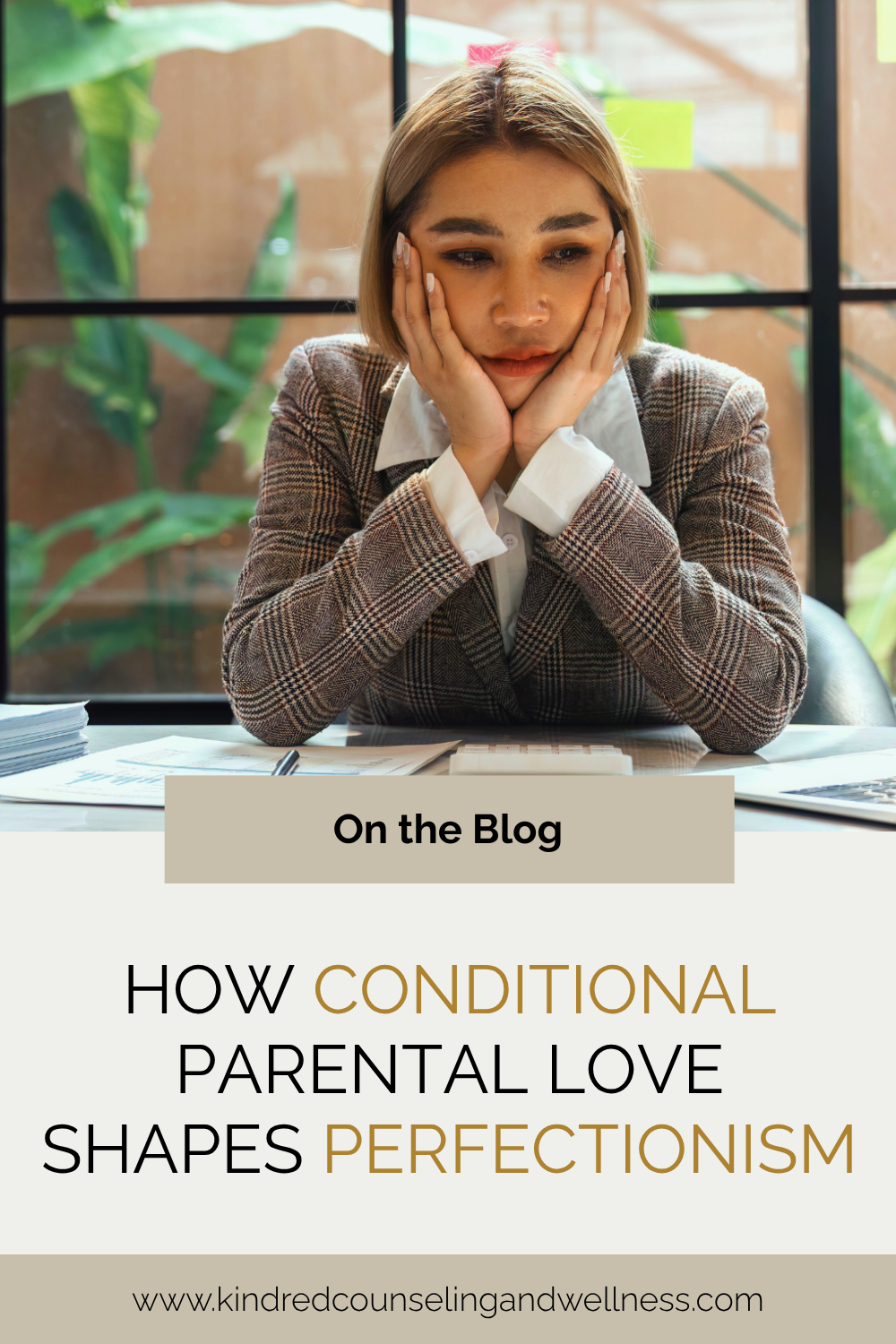How Conditional Parental Love Shapes Perfectionism
“In order to be loved, I must be perfect.”
Is this something you consciously think about on a daily basis? Probably not. But this quiet internal belief could be shaping your actions, relationships, self-esteem, and motives.
This belief is often rooted in childhood when our emotions, behaviors, or needs were only accepted or positively responded to under certain conditions. That when you expressed anger, cried, made mistakes, voiced a need, showed curiosity, desired autonomy, or revealed fear or vulnerability, safety and attunement was often or chronically limited or withheld.
But when you demonstrated emotions pleasant to your parents (pleasant as in your emotions aligned with their limited capacity for attunement), complied with their expectations, or performed well, you were met with warmth, praise, or connection.
Over time, this conditional love teaches you that in order to be accepted and to access to connection, you must earn it by being on your very best behavior. You must please. Serve. Achieve. Shrink. Suppress. Be agreeable. Be easy-going. Stay out the way. Be needless. Be happy. Be good. Be perfect.
That in order to have your needs met, in some way, you need to prioritize others even at the expense of yourself.
As adults, this turns into people-pleasing, codependency, blurred boundaries, minimizing or suppressing needs to become “needless”, self-blame when other’s show up emotionally inconsistent, or chasing external validation to prove you are loveable. Underneath this is a tender aching fear — a fear of rejection (I’ll be seen as unlovable), a fear of abandonment (I’ll be left all alone), or a fear of intimacy (I’ll be vulnerable and get hurt).
But here’s the truth: You were never unworthy — you were just unseen.
Healing begins when you acknowledge and accept that parents/caregivers were unable to meet your needs due to their limitations, not due to your worth. I highlighted the function of internalizing your parent’s behaviors in this blog.
As you begin to unravel the belief, “In order to be loved, I must be perfect.”, waves of grief and healing will follow. Be compassionate with yourself every step of the way. And know that you don’t have to heal alone. Find support, community, even a solid book that guides and validates you through your journey.
